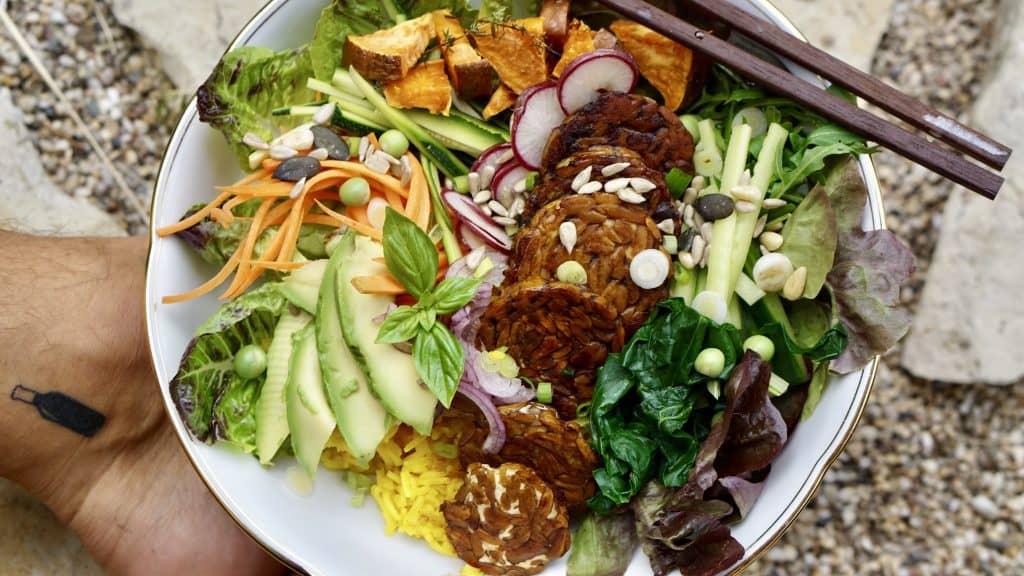Nội dung
Europe Food Trends 2024: In the anticipated landscape of European culinary developments for the year 2024, the food sector is poised for a transformative shift, heralding a noteworthy change brought about by the impending trends on the horizon.
Food culture is changing, which has far-reaching implications for the food sector, as well as allied industries, politics, and society. Because eating is an emotional experience, changes in consumers’ ethical and ecological beliefs, as well as their taste preferences, manifest in food.
The European Food Trends 2024 represent this shift, with innovations that begin in niches before progressively transforming the food system. The Food Report 2024 is published by the Future Institute and covers food culture in the future from numerous angles. Hanni Rützer, author and food trend analyst, focuses on potential solutions to the food and beverage industry’s difficulties.
Plant-based, innovative work, and green taste are the food trends for 2024.
Vegan, vegetarian, and flexitarian diets are on the rise. Meat has lost its dominance on the plate, mostly for ethical and environmental grounds. The industry has responded with a plethora of alternative goods that now effectively mimic the flavor of meat. Gastronomic concepts rely on inventive plant-based menus, and agricultural thinking is changing.
The “New Work” megatrend is transforming not just the working culture, but also the dining culture. Flexible models in terms of working hours and location upend long-held eating patterns. Snacking has long been on everyone’s lips, but cooking itself – quick and easy – is witnessing a revival. Everyday working life shapes food patterns, resulting in new demands on workplace catering.
There is widespread consensus that a shift in food production is required to address the food system’s critical issues while also meeting climate targets. In-vitro, novel genetic engineering, and precision fermentation are examples of emerging technologies that promise unique solutions for producing new foods beyond standard agricultural production. However, greater social acceptance is required for this.
Europe Food Trends 2024 that Businesses Should be Aware of
Food trends are not static occurrences; they are always evolving. They grow stronger or more precise, or they stagnate or weaken. They distinguish themselves, merge to generate new trends, or create an entirely new dynamic. This year’s update examines which patterns are now being driven by these changes.
1. Plant-based foods, Vegourmets, Carnivores, and True Omnivores
Plant-based eating has established itself as a significant trend. At the same time, as a result of the success, counter-trends emerge: the introduction of novel meat attributes, targeted selection, and conscious pleasure of meat are condensing into a new culinary trend “Carneficionados.”
2. The local, the glocal, the cruel, and the strange
“Regional beats organic” is a memorable tagline from the recent past. Food regionalization has already been sharpened and differentiated over many years, from avant-garde gastronomy’s “brutally local” attitude to the breeding or local production of exotic animals and flora.
3. Female Food Trend Connoisseurs
Women are increasingly driving change in the food industry. They prioritize social and environmental concerns in their work more frequently and clearly than males, and they also affect company culture. Women are driving the organic food movement and shaking up the catering industry.
4. Food re-use, zero waste, and circular food
Despite countless initiatives and agreements, food waste remains a significant problem. The “circular food” movement offers a fresh perspective: it is no longer only about minimizing or avoiding waste, but about taking a fresh look at food.
5. Regenerative Food 2024 Food Trend
The focus of this trend is no longer on what we put on our plates, but on how we create food. “Regenerative Food” emphasizes arable land as a critical component of a healthy environment.
The Future of Organic Agriculture
Europe food trends 2024 return to basics or embrace new technologies? When it comes to food quality, organic has long been at the forefront of the argument. As a result, the movement became a big innovator in the entire food sector. “Organic” has crafted a success tale that has taken it from a niche to the center of society. Conventional products are getting closer to meeting organic standards. However, organic appears to be reaching its limits: a taboo that blends technical breakthroughs with ecological production must be broken.
Originating from the Future Institution’s 2024 trend study, the information is credited to Hanni Rützler, a highly esteemed and influential figure in European food expertise. Serving as a qualified nutritionist, Rützler has been an author and speaker at the Zukunftsinstitut in Frankfurt and Vienna since 2004. Renowned for her pioneering contributions to nutritional science and her role as a consultant and researcher with a multidisciplinary approach to understanding eating and drinking behavior, Hanni Rützler has garnered recognition far beyond the confines of the German-speaking region. Her fame has been solidified not only through her longstanding association with the Zukunftsinstitut but also due to notable events such as her legendary tasting of the inaugural in-vitro burger.





